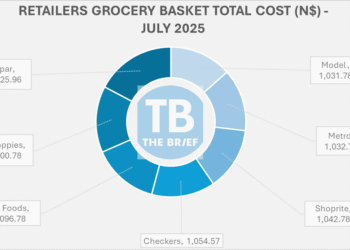
Zambia plans to import fuel from its oil-producing neighbour Angola in the government’s push to lower pump prices and stem supply shocks.
Zambia has agreed to buy a stake in Angola’s Lobito refinery in Benguela Province along the Atlantic Coast. President Hakainde Hichilema, during his three-day visit to Angola, assured his host that his country would invest in the Lobito refinery that is under construction.
“It makes no sense to import fuel from other parts of the world when we have a neighbouring producer,” President Hichilema told journalists at a press conference in the capital Luanda after a meeting with President João Lourenço.
“I don’t know how we have managed to maintain this situation of buying fuel from Saudi Arabia and other parts of the world and not from our neighbour,” he added.
Hichilema arrived in Luanda Tuesday and will visit the refinery in Benguela and the Lobito corridor, consisting of railroad and port, offering the shortest route linking Zambia and the Democratic Republic of Congo’s key mining regions to the Atlantic Coast.
In July, the Angola government signed a 30-year concession with a consortium of Trafigura, Mota-Engil Engineering and Construction Africa, and Vecturis, Belgium, to operate rail services and offer logistical support for the Lobito corridor.
The rail line runs approximately 1290km from Luau on the eastern border with DRC to the Lobito Port on the Atlantic.
Angola and Zambia are also conducting a feasibility study for a proposed oil pipeline from the Lobito refinery to Lusaka.
President Lourenço said the refinery construction is expected to be concluded in 2026.
“It is very natural that Zambia, as our neighbour, has a great interest in acquiring these fuels in Angola, in the neighbouring country, especially when Angola has a greater capacity to refine the crude oil it extracts,” President Lourenço said.
The refinery is projected to process up to 200,000 barrels per day when completed. According to a proposed governance structure, private investors, including Zambia, will own 70 percent of the refinery, with Angola state oil firm Sonangol controlling a 30 percent stake.-eastafrican
Â











